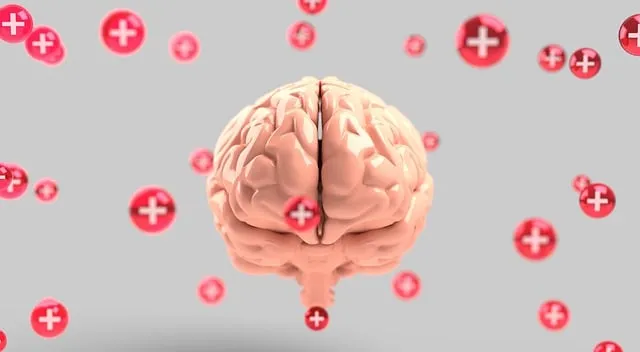Diagnosing mental illness accurately at Kaiser Permanente Mental Health Westminster is a complex task due to psychological disorders' intricate nature and varied patient presentations. To overcome challenges related to co-occurring conditions, cultural diversity, and individual life experiences, healthcare providers undergo training in mental health policy analysis and advocacy, conduct thorough assessments, consider trauma support, and tailor interventions. Innovative strategies like Burnout Prevention and Mindfulness Meditation programs aim to reduce provider stress and improve cognitive function. Mental Health Policy Analysis and Advocacy reforms diagnosis processes through evidence-based policies and continuous professional development. These efforts ensure precise, timely diagnoses, improving patient care at Kaiser Permanente mental health Westminster and similar institutions, benefiting both patients and communities.
Mental illness diagnosis accuracy is a critical aspect of healthcare, especially at organizations like Kaiser Permanente Mental Health Westminster. This article explores the challenges faced in diagnosing mental health conditions within this esteemed institution and delves into innovative approaches designed to enhance diagnostic accuracy. From advanced assessment tools to patient-centric strategies, we examine efforts aimed at improving care. Additionally, we discuss the impact on patients and the future of mental health diagnosis, highlighting Kaiser Permanente’s leading role in advancing these crucial initiatives.
- Understanding the Challenges of Mental Illness Diagnosis at Kaiser Permanente Mental Health Westminster
- Innovative Approaches to Enhance Diagnosis Accuracy
- The Impact and Future Directions for Improved Mental Health Care
Understanding the Challenges of Mental Illness Diagnosis at Kaiser Permanente Mental Health Westminster

Diagnosing mental illness accurately at Kaiser Permanente Mental Health Westminster presents unique challenges due to the complex nature of psychological disorders and individual variations in symptoms. Often, mental health professionals face a daunting task of differentiating between various conditions, especially when co-occurring or presenting with similar manifestations. This complexity is further exacerbated by the diverse cultural backgrounds and unique life experiences of patients seeking care at Kaiser Permanente Mental Health Westminster.
Effective communication strategies are pivotal in navigating these challenges. Through ongoing training in mental health policy analysis and advocacy, healthcare providers can enhance their skills to conduct comprehensive assessments, consider trauma support services, and tailor interventions to meet individual patient needs. Such efforts aim to improve diagnostic accuracy, ensuring that every individual receives appropriate care and support at Kaiser Permanente Mental Health Westminster.
Innovative Approaches to Enhance Diagnosis Accuracy

In an effort to improve mental illness diagnosis accuracy at institutions like Kaiser Permanente mental health Westminster, innovative approaches are being explored. One such strategy is integrating Burnout Prevention Strategies for Healthcare Providers, which focus on reducing stress and enhancing cognitive function. Programs incorporating Mindfulness Meditation have shown promise in improving diagnostic precision by cultivating awareness and attentiveness. These practices not only benefit providers but also foster a more nuanced understanding of patient presentations.
Additionally, Mental Health Policy Analysis and Advocacy plays a crucial role in streamlining diagnosis processes. By examining existing policies and advocating for evidence-based reforms, healthcare systems can implement standardized protocols that improve accuracy. This includes refining assessment tools, enhancing inter-rater reliability, and promoting continuous professional development among mental health practitioners. Such efforts collectively aim to ensure more precise and timely diagnoses, ultimately improving patient care at Kaiser Permanente mental health Westminster and similar institutions.
The Impact and Future Directions for Improved Mental Health Care

The journey towards enhancing mental illness diagnosis accuracy is an ongoing process that demands a multifaceted approach. Organizations like Kaiser Permanente Westminster play a pivotal role in this pursuit by implementing innovative strategies and integrating advanced tools into their mental health care services. This commitment to improvement not only benefits individuals seeking treatment but also contributes to the broader goal of fostering better mental wellness within communities.
Looking ahead, the future of mental healthcare promises enhanced patient outcomes through increased adoption of self-care practices and culturally sensitive approaches. Encouraging patients to engage in activities like mental wellness journaling exercises can empower them to actively participate in their healing journey. By combining these personal initiatives with professional support, mental health care providers can create a holistic environment that promotes recovery and overall well-being, setting the stage for a brighter and healthier future for all.
Efforts to improve mental illness diagnosis accuracy, as explored at Kaiser Permanente mental health Westminster, are vital for enhancing patient outcomes. By employing innovative approaches, such as advanced assessment tools and multidisciplinary teams, we can navigate the complex landscape of mental health diagnostics. These strategies not only ensure more precise diagnoses but also foster a holistic understanding of individual needs, ultimately revolutionizing care delivery at Kaiser Permanente mental health Westminster and beyond. This focused approach is a game-changer in the pursuit of improved mental health care, promising a brighter future for those seeking support.






